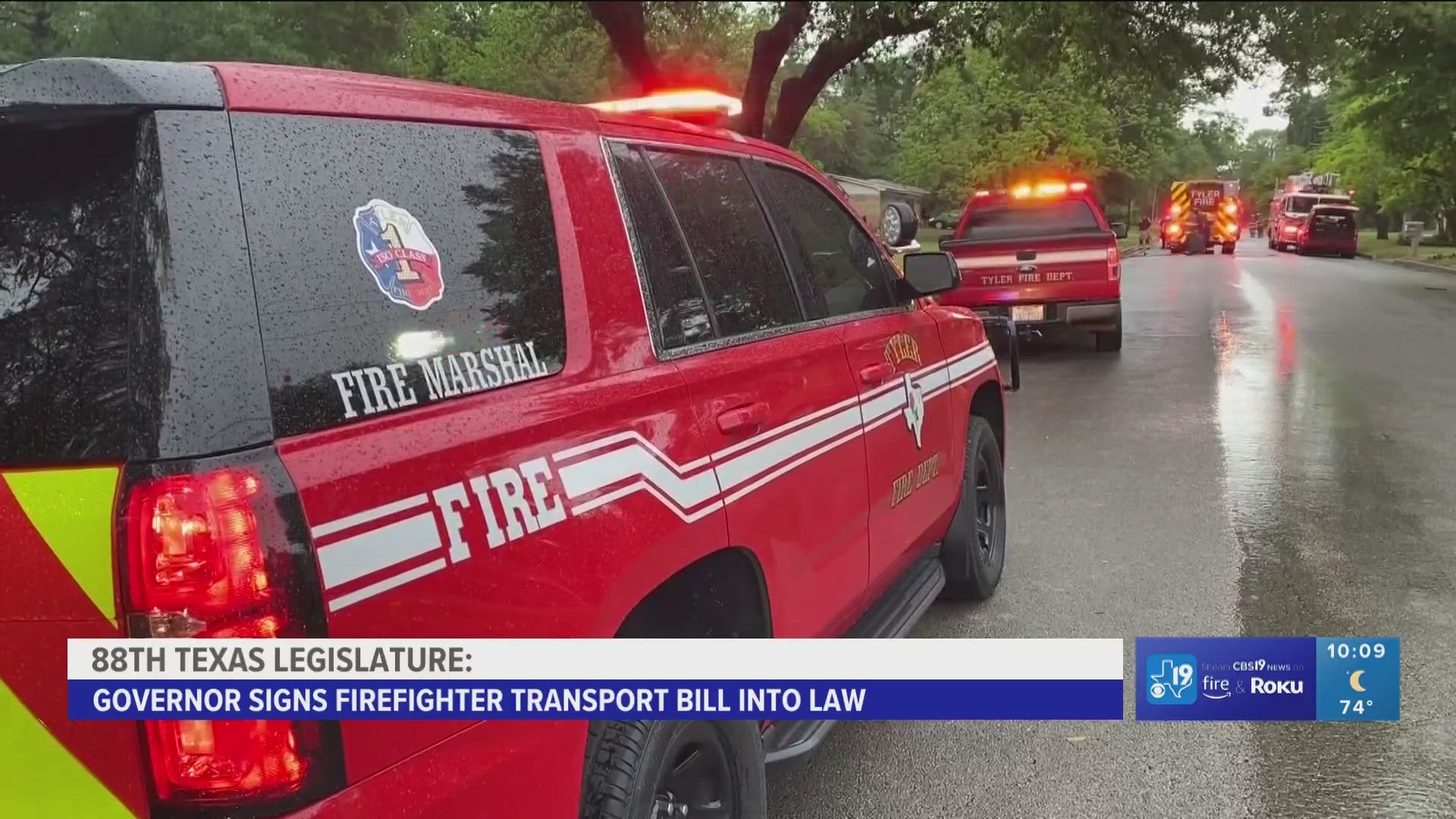PALESTINE, Texas — A bill that will allow firefighters to legally transport patients to the hospital is on its way to becoming law in the state of Texas.
This week, Gov. Greg Abbott officially signed House Bill 624 into law but it won’t take effect until Sept. 1. It will have the most significant impact in rural parts of Texas that are hard to reach by ambulance, such as the East Texas region.
People hear it every day -- firefighters rushing down the road, responding to an emergency.
“We're gonna respond to most medical calls, any fires, any wrecks, rescues,” said Flint-Gresham Fire Department Assistant Chief Keith Tate.
They are often first on scene and in certain rural areas firefighters respond quicker than ambulances. But under Texas law, it was illegal for firefighters to transport people to the hospital, even if they are in critical need.
That changes when a new law goes into effect this fall. It's House Bill 624 -- written by East Texas state Rep. Cody Harris, R-Palestine.
Harris represents the following counties: Anderson, Cherokee, Henderson (partially) and Navarro.
“In situations where it's truly life or death, if it's your baby lying in there that needs immediate attention,” Harris said. “You don't care how they get to the hospital, you just want them there to get the treatment that they need so desperately in that moment.”
The bill was inspired by similar legislation that became law in Oklahoma last year.
“A lot of times what we see when a call goes into 911, the very first people to respond to that call are firefighters,” Harris said. “Whether that's volunteer fire to firefighters, or a small city's fire department, those are the first guys there.”
The bill received overwhelming support in both the House and Senate, and it passed with zero opposition.
Tate said the new law will help his department during a natural disaster like the February 2021 winter storm or a tornado outbreak. He said having this in writing will open the door to saving more lives.
He mentioned fire departments across East Texas are limited when it comes to helping critically injured community members in emergencies.
“We weren't really prepared in some ways for some of the disasters we had,” Tate said. “And so this is just trying to be proactive toward the future and being prepared for everything.”
Before it becomes law, Tate said questions need to be answered.
“We don't have a stretcher on our truck. So where's the patient going to see it? How are we going to care for them during that transport?” Tate said.
According to language in the bill, the East Texas Regional Advisory Council will meet to further clarify when exactly firefighters are allowed to make that call.
The advisory council said they will be meeting in the coming months to finalize the terminology that will apply to firefighters in East Texas. The law will officially take effect Jan. 1, 2024 to allow for time to determine these logistics.

